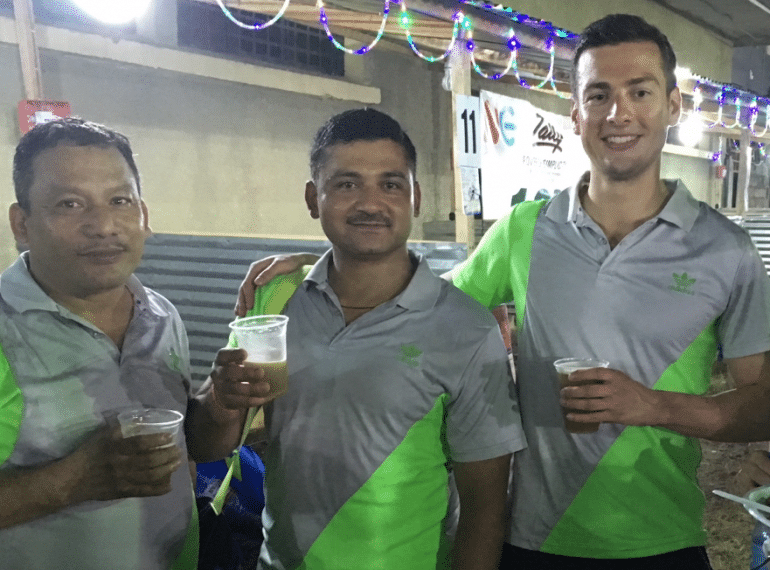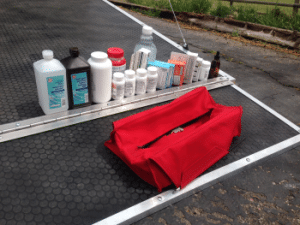
Former School Captain Sam Sherman takes up a prestigious Kennedy Scholarship at Harvard next month and plans to use it to further his thinking on the complexities of contemporary humanitarianism.
Sam (OE 2004–2011) has worked for the Department for International Development (DFID) since March 2016 in roles that have included exploring the use of drones to deliver supplies in volatile regions and supporting UN agencies in a recent visit to the Democratic Republic of the Congo.
“I applied to the Harvard Kennedy School of Government in order to examine the political economy of aid,” he says, adding that the time at Harvard given by the scholarship will help him “address some of the thorny, political questions regarding humanitarianism, and explore innovation with the Harvard Humanitarian Initiative”.
The Kennedy Scholarship provides full funding for postgraduate study at either Harvard or MIT. It was created as a ‘living memorial’ to President John F. Kennedy following his assassination. The Kennedy Memorial Trustees are appointed by the Prime Minister. Previous scholars include politicians David Miliband, Yvette Cooper and Ed Balls, former Governor of the Bank of England Mervyn King and BBC journalist Stephanie Flanders.
When considering applicants, the trustees look for intellectual attainment, readiness and ability to express themselves, originality of mind, commitment to public service, and potential to make a mark in public life.
Sam, who was at QE with two older brothers, Joe and Jamie, was School Captain in 2010. In the following year, he won a place to read Politics, Psychology and Society (PPS) at Cambridge.
“After leaving QE, I took part in a humanitarian mission to Northern Kenya during the 2011 East Africa Crisis,” he says. “I was fortunate enough to pursue my interest in international development and humanitarian aid at university, studying Politics with a focus on conflicts and aid.”
After graduating with a first from Cambridge he joined the International division of the Civil Service Fast Stream, undertaking posts in DFID’s Middle East and North Africa Department and elsewhere in Government.
 “More recently I’ve been working closely with the UN World Food Programme and other DFID partners to test how drones can be used to address humanitarian challenges, for instance by delivering critical medical aid following sudden-onset emergencies.”
“More recently I’ve been working closely with the UN World Food Programme and other DFID partners to test how drones can be used to address humanitarian challenges, for instance by delivering critical medical aid following sudden-onset emergencies.”
In April 2018, in his capacity as Unmanned Aerial Vehicles (drones) Lead for DFID, Sam took part in a panel discussion at the UN on the use of innovative technology for humanitarian action. He told the delegates: “Drones are already being used relatively routinely – for example, for mapping and monitoring following natural disasters – and they are likely to become more routinely used as the technology develops and becomes more affordable.” The discussion can be viewed here. Sam’s speech begins at 55m 13s.
Since then, in response to the situation in war-torn D R Congo, he has undertaken a short-term assignment to Kinshasa and Goma. “I was primarily working on behalf of DFID with the UN agencies responding to the humanitarian crisis in the East. (During some of the evenings I also played in the Congolese Premier League in a British Embassy/Gurkha cricket team, despite my less-than-impressive cricket history at QE!)”
- The photos show Sam, right, with fellow members of the cricket team and also show a package of supplies delivered by drone.
